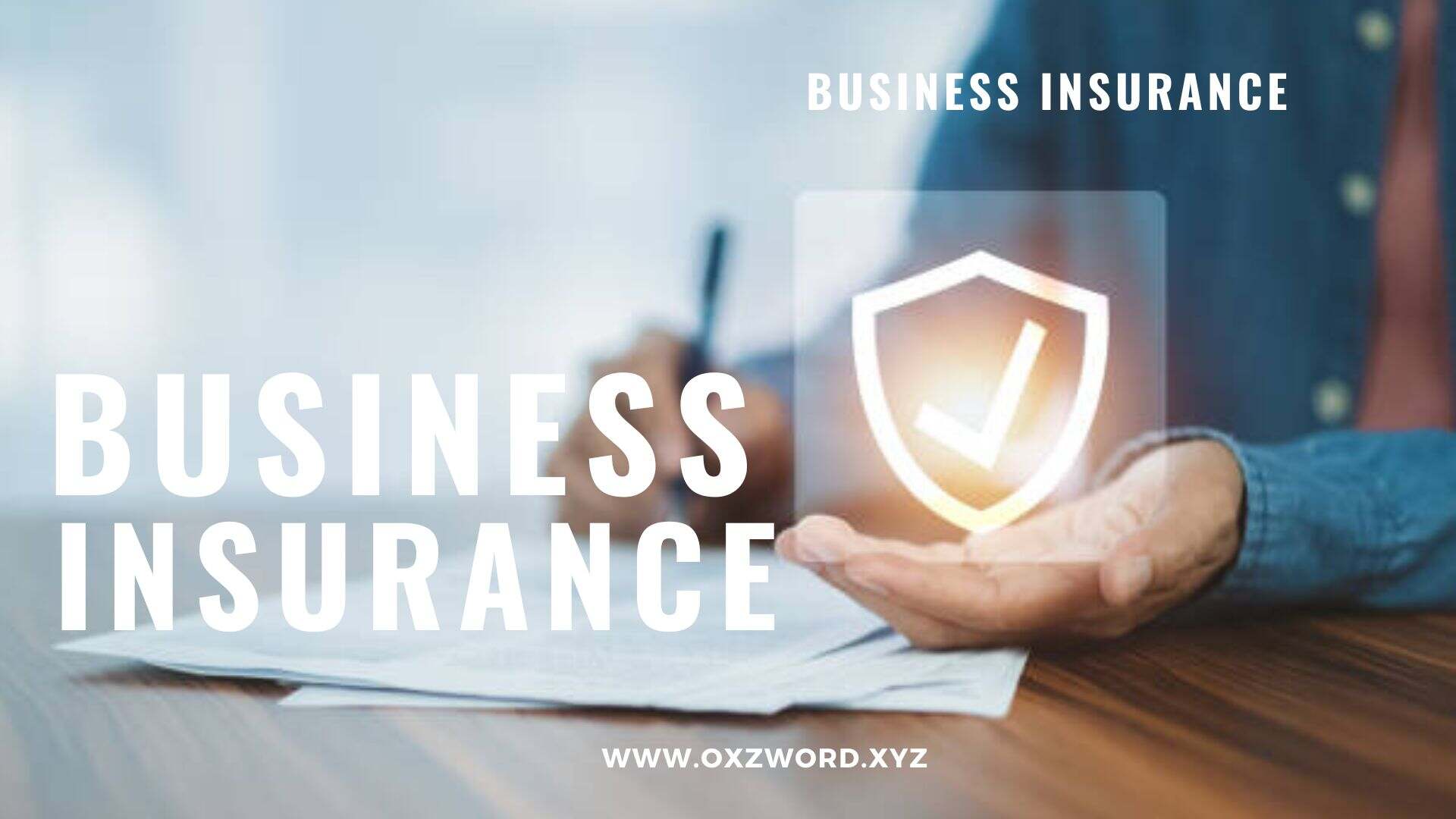H1: Business Insurance – Safeguarding Your Enterprise
Running a business is an instigative and satisfying trip, but it’s not without pitfalls. From unexpected accidents to lawsuits, the challenges can jeopardize your operations and financial stability. That’s where business insurance becomes a crucial component of your strategy—providing the protection your business needs to thrive.
This guide will walk you through the essentials of business insurance, why it’s important, and how to choose the right policy for your enterprise.
What Is Business Insurance?
H3: Definition of Business Insurance
Business insurance is a broad term for policies that protect businesses from financial losses due to unforeseen events. These events can range from property damage and lawsuits to employee injuries and customer claims. It’s a financial safety net that allows businesses to recover and sustain operations during tough times.
H3: Types of Business Insurance
General Liability Insurance: Covers third-party injuries and property damage caused by your business.
marketable Property Insurance Protects physical means like structures, outfit, and force.
Professional Liability Insurance: Also known as errors and omissions insurance, it safeguards against claims of negligence or mistakes in professional services.
Workers’ Compensation Insurance: Provides benefits to employees injured on the job, ensuring legal compliance.
H2: Importance of Business Insurance
H3: Protecting Against Financial Loss
Accidents and lawsuits can drain a business’s resources, leading to severe financial setbacks. Business insurance mitigates these risks by covering legal fees, settlements, and repair costs. For example, a fire that damages your property could result in significant expenses without insurance.
H3: Legal Requirements
In many states, specific insurance policies like workers’ compensation are legally required. Some industries also mandate specialized coverage, ensuring businesses meet regulatory standards.
H3: Building Trust and Credibility
Clients, partners, and investors often prefer working with insured businesses. Insurance demonstrates professionalism and a commitment to risk management, which can boost your reputation and open new opportunities.
H2: Types of Business Insurance Policies
H3: General Liability Insurance
This policy protects your business from third- party claims involving fleshly injuries or property damage. For case, if a client slips and falls on your demesne, general liability insurance can cover medical costs and legal freights.
H3: Commercial Property Insurance
Whether you enjoy or lease property, this insurance safeguards your physical means. It covers damage caused by fires, storms, theft, and vandalism, ensuring your business can recover from such incidents.
H3: Professional Liability Insurance
Mistakes happen, but when they lead to financial losses for your clients, you could face lawsuits. Professional liability insurance protects professionals like consultants, lawyers, and architects against such claims.
H3: Workers’ Compensation Insurance
This policy ensures employees receive medical and wage benefits if they are injured at work. It also shields employers from suits related to plant injuries.
H2: Factors to Consider When Choosing Business Insurance
H3: Assessing Business Risks
Every business has unique risks. A construction company may face higher physical risks than an online consultancy. Understanding these vulnerabilities helps determine the type and level of coverage needed.
H3: Understanding Policy Coverage
Carefully review what your policy covers and what it doesn’t. Many policies have exclusions, so consider additional riders for full protection.
H3: Budget and Premiums
While comprehensive coverage is essential, it’s also important to stay within your budget. Compare policies to find a balance between cost and coverage.
H2: Steps to Get the Right Business Insurance
H3: Analyze Your Business Needs
Evaluate your operations to identify potential risks. Are you dealing with physical inventory? Do you provide services that could lead to liability claims? Tailor your policy to these needs.
H3: Compare Insurance Providers
Research and compare insurance companies based on their reputation, customer reviews, and premium rates. Choose a provider with a strong track record in handling claims efficiently.
H3: Consult a Professional
Insurance brokers and agents can provide invaluable advice. They understand the market and can recommend policies that align with your specific requirements.
H2: Common Myths About Business Insurance
H3: “Small Businesses Don’t Need Insurance”
Many small business owners believe insurance is unnecessary, but even minor incidents can lead to significant losses. For example, a single lawsuit could bankrupt a small enterprise.
H3: “Insurance Covers Everything”
No policy is all-encompassing. It’s crucial to understand exclusions and consider additional riders for complete coverage.
H3: “It’s Too Expensive”
Business insurance is often more affordable than assumed. Many providers offer flexible plans, making it accessible even for startups.
H2: Benefits of Business Insurance
H3: Financial Stability
With insurance, businesses can weather financial storms caused by accidents, lawsuits, or property damage.
H3: Peace of Mind
Knowing your business is protected allows you to focus on growth and innovation without constant worry about potential risks.
H3: Employee Retention
Offering workers’ compensation and other benefits fosters loyalty and morale, creating a positive work environment.
H2: FAQs About Business Insurance
What Does Business Insurance Typically Cover?
Business insurance covers a wide range of risks, including property damage, liability claims, and employee injuries, depending on the policy type.
How Much Does Business Insurance Cost?
The cost varies based on factors like business size, industry, and coverage needs. Small businesses can often find affordable plans.
Do I Need Business Insurance If I Work From Home?
Yes. Even home-based businesses face risks like property damage or client lawsuits, making insurance essential.
How Can I File a Claim?
Notify your insurance provider immediately after an incident, provide the necessary documentation, and follow their claims process.
Can I Change My Insurance Policy Later?
Yes, policies can often be updated to reflect changing business needs. Consult your provider for details.
Conclusion: Protect Your Business with the Right Insurance
Business insurance is not just a safety net—it’s a critical investment in your enterprise’s future. By protecting against financial losses, ensuring compliance, and building trust, it allows your business to thrive with confidence. Take the time to assess your risks, explore policy options, and secure coverage that suits your needs.
